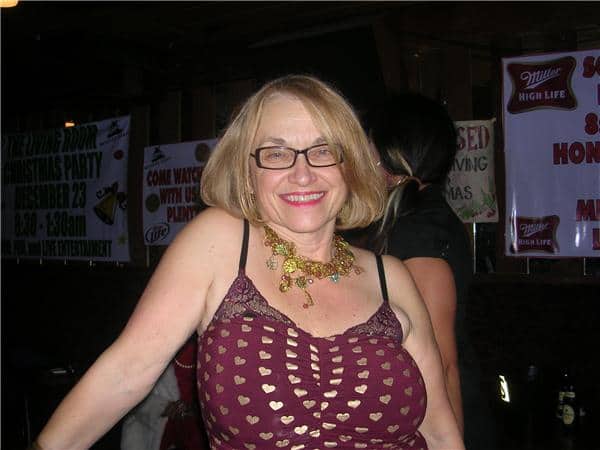
 I lost both parents to what turned out to be terminal cancer diagnoses. The slowly debilitating nature of the disease is sometimes easier for the survivors than a sudden death would have been, because it gives you a chance to offer some succor, to do something useful, to say a proper goodbye. But for sick loved ones themselves, the gradual deterioration is far from what anyone would have wanted or expected. From the inability to enjoy food, to the waning of interest in favorite leisure activities, to the discomfort the sickness itself brings, these are unanticipated conundrums of fate.
I lost both parents to what turned out to be terminal cancer diagnoses. The slowly debilitating nature of the disease is sometimes easier for the survivors than a sudden death would have been, because it gives you a chance to offer some succor, to do something useful, to say a proper goodbye. But for sick loved ones themselves, the gradual deterioration is far from what anyone would have wanted or expected. From the inability to enjoy food, to the waning of interest in favorite leisure activities, to the discomfort the sickness itself brings, these are unanticipated conundrums of fate.
One of my most indefatigable friends has been diagnosed with seemingly incurable cancer. Her doctors have suggested six months. At my age, I’ve lost some friends and acquaintances, and seen plenty of friends go through the ravages of cancer, strokes and heart problems, but this is the first time a best friend of mine has been confronted with such a trial. It is on my mind 24-7, and I seek ways to make her as comfortable, cheerful and challenged as possible. I began to reflect on our times together over the past eleven years, and began to transcribe some life perspectives of my friend, an exacting writer, business person and English teacher.
So I sit with my friend, Kari Fretham, and take notes as I interview her in an attempt to capture some of the most unique, compelling and inspirational aspects of her life. Kari is a person who has been intimate with Culver City for the past 17 years as an 8th grade English teacher to scores of Culver City Unified middle and high school students. As is the wont of an English teacher, we started with a quote. I quote myself, “I’ve never met a person who explained a thing as well as Kari Fretham.” Here’s what she shared:
“I can put myself into someone’s position really easily. Whenever I wanted to explain something, I could always figure out when they weren’t understanding. It had something to do with the explaining itself, and the modality (visual, tactile, etc.)
“I could put myself into a student’s position, and understand where the confusion might be. The reason this skill developed was my special ed background. I was taught a thing in 1970’s, when I was in my 20’s. It was called “errorless learning.” The point was that you taught just enough, and built a chain of understanding. There would be nothing you’d learned wrong, and nothing you’d confuse. You just went on to the next step. You were never anxious. The understanding had to do with the information being broken down. We did this with students who had significant learning handicaps. Like, teaching a student to how eat, how to turn when you said his name, or how to write her name. There was an idea to do it in an errorless learning chain. You could do forward or backwards chaining. This theory is still present in work with autism.
“It became a natural approach to life and learning for me. I came to believe that if you found a way to teach someone, that person is able to be taught. In this theory, the teacher holds all the responsibility, which us not always the most popular thing. But what it does, is give extreme hope to students.
“I have explained thousands of things to students with only blank sheet of paper and a pen. That paper became the white board. Drawings, numbered steps, arrows, would fill the paper to support verbal explanation. I always taught trying to come up with a way to get most of the students in the large group to understand. Of course, there would be some who, after the large group session, were still confused. If we couldn’t clear it up before or after class, or during breaks, I would have them schedule an appointment with me after school. There’s nothing of more importance to me than a student experiencing learning. In student letters at the end of the year, they would tell me they’d never met a teacher who cared so personally about their learning.”
We sat back and felt done with this one aspect of Kari’s teaching and personality, but, suddenly back in my former role as advocate for gifted students, I asked my favorite question, “what did you do with students who already knew the material?” Kari leaned back a little, surrendered a hand up and smiled, “I wasn’t as good at that; I was never the perfect teacher.”
But she really was, and is, the perfect teacher. To me, a perfect teacher is not about the subject they teach or the methods they use to teach, it’s about whether they are a person who genuinely cares about the people they serve, and believes in second, third, and even infinite chances.
Although our administration might have maintained that class assignments were done randomly, I think Kari’s approach to education is what landed her with the most difficult students that passed through my 6th and/or 7th grade English classes into her 8th. She was “that teacher” who always knew how best to handle academic or behavioral challenges in students. For a while, us newer teachers would refer to it as “WWKD (What Would Kari Do).” The English Department which, incidentally, Kari headed up for most of the ten years I was on the job, often collaborated across grades on struggling students. Kari would speak lovingly about the most infamous of them. She’d say a student’s name suffixed with a “bless-his-heart,” and proceed to tell us a story of the particular student’s success at writing a paragraph in her classroom.
Kari Fretham has a way of seeing and honoring the non-academic gifts in us all. When I’ve admired signs of book smarts in a person, even at the cost of social graces, Kari laughingly prefers more intuitive souls who, for example, can make a guitar sing the blues.
Editor’s Note – There will be more about Kari in upcoming columns.


Lovely words about Kari, Ruth. I loved her as a teacher and respect her as a
person. She is a gifted educator and spectacular person. Please give her my best wishes. Sending thoughts and prayers her way.
Tracy
Thanks for sharing a side of Kari that I was only marginally aware of, since I met her in the blues clubs of Los Angeles. She has been an invaluable part of that scene, as well.
Kari is irreplaceable,really and she had better stay with us as long as she is able.
Thank you for writing in here, Tracy, Kari is loving the comments on the articles; they really mean a lot to her.
Thank you so much for reading, and writing, Glen!
I met Kari as a graduate student in the late 90’s in The Bay Area.. She enlisted me to join her team of In Class Support Specialists. She was not only my ‘boss’ but my mentor. She instilled in me a confidence to trust in my intuitive skills, not to shy away from them, and was instrumental in teaching me how to get others to ‘ come alongside’ and how to ‘stay the course’ when circumstances would be come difficult. Kari was on the cutting edge of developing Applied Behavior Analysis principals (errorless learning, forward-backward chaining) in teaching children with autism. She was an invited participant on one of the first Blue Ribbion Commissions for Autism in Ca. She devrloped many strategies and teaching materials in how to view and analyze behavior from a ‘functional perspective’ depending on the individual involved. Kari possess the ability to identify and approach others (kids snd adults) from their level of understanding, their perspective. And that ability, that level of intuitiveness, is what allows others to be inspired by her, to want to learn.
Back then I was part of a group of 15 individuals, all with different degrees and backgrounds. Kari led us, inspired us and established a workplace culture that held us all together. She had many sayings she would use and exposed me to the delight of fine wine and cheese. We all wanted to work for her, to learn her skills and teach them to others. There was nothing better then the feeling experienced if you were handed the company credit card by Kari while being thanked for a job well done and being told “now go have a nice dinner”. I cried when Kari told us she was moving to LA . I understood why she was moving but I mourned not being able to continue to learn from her.
I am grateful to Kari for her graciousness in sharing her love and light and passion for viewing all behavior as communication, and that all children can learn. This view has helped keep my business running for the past 15 years. I only hope that I am teaching my employees with the ssme selfless graciousness that Kari used with me.
Vicki, what a wonderful tribute to Kari! Thank you so much for this.